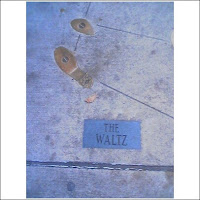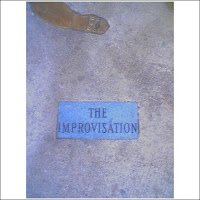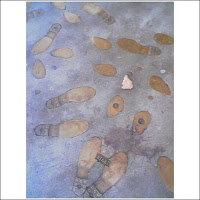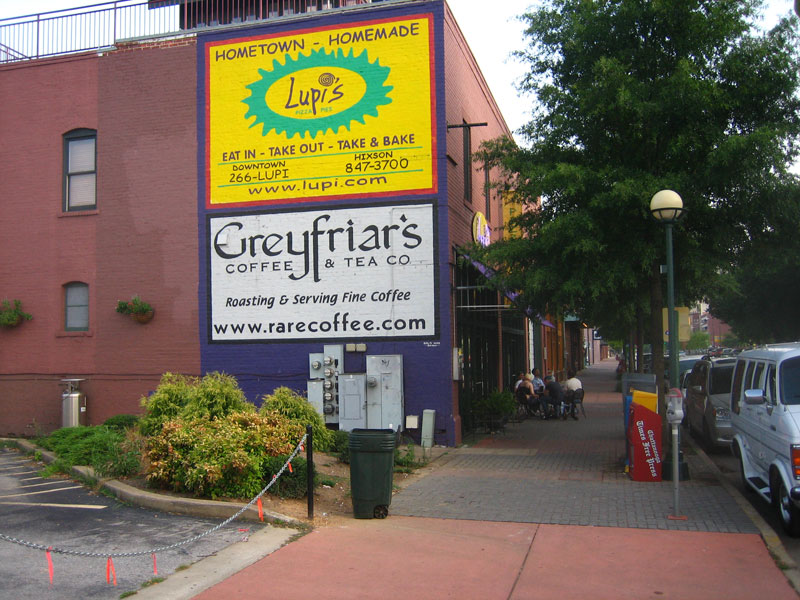Back in October I made a visit to Durham by myself to begin looking for a cooking job. I had the advantage of getting advice and direction from a local restaurateur who is connected with the church and knows the culinary landscape of the area very well. (He also opened his own very cool wine bar last Friday.) Other church members sent suggestions as well. I took it upon myself to be a bit of a culinary cyber detective, chasing down all sorts of links and tangents, looking for just the right place. One site I found was for a restaurant that had not even opened, yet the vibe the chef created through the web page pulled me in. By the time I made my trip they had been open a week and she was standing at the front door next to the host stand when I walked in for lunch. I talked to her for a moment, gave her my resume, ate lunch, and left to catch my plane back to Boston.
“When it gets closer to your being here, come see me,” she said.
Ginger and I came back about a month later to find a place to live. I took her to the place and, once again, Chef was standing at the front door. My gift to her this time was a copy of the menu from the place I was working in Plymouth.
“Awesome,” she said. “Let me know when you get to town.”
Last Friday — after we get into our house on Thursday – I went by the restaurant, this time to say, “I’m here.” I talked to Chef and her Sous Chef for about a half an hour and she said they wanted to look at some numbers and asked if I would come back on Tuesday, which I did. I got there yesterday afternoon and was treated to lunch (she makes killer hush puppies) and then we began talking about a job for me. I realized as she and Sous spoke, they were not speaking in theoretical terms; they were ready to hire me. Chef was talking schedule and responsibilities.
“Can you work tomorrow night?” she asked.
“Sure,” I said.
“Well, let me ask you this: can you come in tonight for an hour or so to see how I run the line because I have a meeting tomorrow night that I forgot about and I need someone running the line I can trust; and I can trust you.”
I’d seen this woman four times for a total of about an hour and she felt as though she could trust me. Funny thing: I felt the same way in return. I’m not sure how that works between people – the intuitive resonance – and I’m glad it does. I got to the kitchen about 6:30 last night and by 6:35 I was calling tickets and making sure the plates were going out as they should. The kitchen was new to me, the faces around me were unfamiliar, the menu was different, and I was right at home doing what I know how to do: improvisation.
I woke up this morning thinking about the progression of virtue as described by Samuel Wells: repeated practices nurture skill, skill develops habit, habit develops instinct: “a pattern of unconscious behavior that recalls a deep element of character.” Cooking is in my bones, in my DNA. I grew up in the kitchen and I’ve worked hard to hone my craft as a profession, even though I’m late to the game in many respects. I’ve got good instincts now about how to cook, how to treat the people I work with, and what it means to feed people well. So I smiled when I read this statement from a local news article about Chef:
“She wants to feed the neighborhood and everyone is important.”
I guess the trust that came so easily for both of us is evidence of a deeper resonance. I went in looking for a job and I think I’ve found a place I’m going to belong. What a gift.
About twenty minutes into my tenure last night, a ticket came through calling for one of the signature appetizers:
Zuke’s Pork Plate with house prosciutto, smoked ham, pork rilletes, and spicy chorizo served with artichoke pickles, grainy mustard, compote, and toasts
The line cook put a beautiful plate together, handed it to me, I called, “Table 13,” and handed it to the food runner. About fifteen minutes later, the server for Table 19 asked about her pork plate; I had called the wrong table, which meant one group got a free app and the other was sitting and waiting.
“Man,” I said, “I didn’t even last an hour before I started screwing up.”
“Hey,” said the server, “you lasted longer than most people.”
When the Chef came back and I told her of my mistake, she said, “Great! Now the people at Table 13 will think I’m really cool,” and she laughed.
I think this is going to be good. Stop by for dinner; we’re open late.
Peace,
Milton















